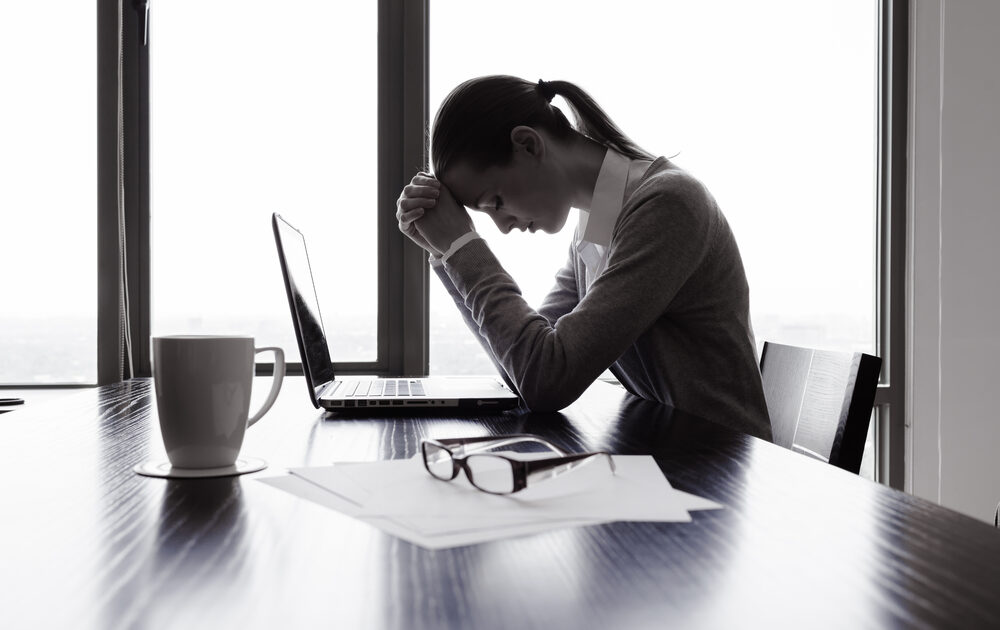Do You Suffer From an Anxiety Disorder? Your Desk Job Could Be to Blame

Sitting too much and inactivity are products of our overworked culture. We sit in our commute to work, sit at our desk all day, and then as a result of daily exhaustion, we come home from work and watch television all night, seated on a couch or chair. Recent research has linked sitting too much to a host of chronic health issues including obesity, cardiovascular disease, type 2 diabetes, and some types of cancer. Now, a recent review takes it a step further finding that inactivity may also increase your risk of mental problems, namely an anxiety disorder.
The review of nine studies (conducted from 1990 to 2014) found that inactivity, as a result of sitting too much, could cause an anxiety disorder in a range of people from children to adults. The size of the studies varied widely from 200 to 13,000 participants.
“It is important that we understand the behavioral factors that may be linked to anxiety, in order to be able to develop evidence-based strategies in preventing [and] managing this illness,” lead researcher Megan Teychenne, a lecturer at Deakin University’s Centre for Physical Activity and Nutrition Research in Australia, said in a statement, reported on LiveScience.
In all, 18 percent of Americans suffer from anxiety, which is persistent worrying that’s often disproportionate or completely unrealistic. For someone that suffers from an anxiety disorder, the feelings don’t go away and can get worse over time. They often interfere with daily activities and in some cases, can be debilitating.
“Anecdotally, we are seeing an increase in anxiety symptoms in our modern society, which seems to parallel the increase in sedentary behavior,” Teychenne said. “Thus, we were interested to see whether these two factors were in fact linked.”
Researchers aren’t completely sure what causes the connection. It could be that sitting too much causes people to have trouble falling asleep at night and a lack of sleep can quickly cause mental disturbances like anxiety. Additionally, inactivity could cause poor metabolic health, which is linked to anxiety, or it could be a lack of social interactions. When you don’t engage socially your worries can often be magnified and the shadow of anxiety can grow.
The benefit of research like this is that it shows us that in some cases we can have a direct impact on whether or not we develop mental health disturbances like anxiety. Knowing that you can in some part change your outcomes is empowering. If you’re guilty of inactivity, cut out sitting time in the places where it’s unnecessary. Specifically, cut out television time at home and replace it with a workout, yoga class, or time with friends or family. If you can bike or walk to work, that’s another easy change. And finally, at work get up every hour and run an errand or go refill your water. If you work from home, alternate house chores with work.
Related on Organic Authority
Certain Types of Anti-Anxiety Medication Could Raise Your Risk of Alzheimer’s
Feeling Anxious? Use Anxiety to Your Advantage By Doing This
Secret Island Herb That Fights Anxiety, Stress & Panic Attacks
Image of a women with anxiety from Shuttershock

